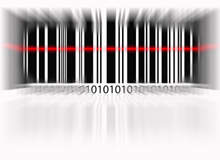
Each year designers are becoming more ambitious and exotic with their packaging designs forcing manufacturers to utilise a wide variety of materials for both container and label applications. As a result, the need to create a more versatile and accurate labelling system is fast becoming a way for manufacturers to keep ahead of the pack.
Such a fact has not gone unnoticed by the UK-based labelling manufacturer Premier Labellers, which has been offering advice on labelling application solutions since 1994. The company’s managing director David Palmer has over 30 years experience within the industry and says he believes customers often underestimate how difficult it is to accurately and consistently label packaging.
“Labelling any product is not easy. The attitude can sometimes be that labelling is a simple process, when in reality it can be frustrating and often seemingly inexplicable. The ability to handle and control both the label and product prior to and during labelling is crucial to perfecting label application,” says Palmer.
“By understanding and recognising the pressures that the packaging industry is facing on a daily basis, and with a growing reliance being placed upon increasingly automated production lines, manufacturers have to be confident in the equipment they are installing.”
Printing problems
All of Premier Labellers’ machines are manufactured to British and CE standards, which according to the company is one of the highest quality standards in the market. Its machines are purchased by a wide variety of industries such as cosmetics and toiletries, household and chemicals, meat packaging, food and drink, and pharmaceutical packaging.
“To satisfy the specific labelling requirements of these widely varied markets, our range of machinery has been developed and designed with the individual applications of each sector in mind,” Palmer says.
“From having to achieve increasingly higher tolerances on label placement for the cosmetics industry, to machinery that can withstand the aggressive nature of the household and chemical working environment, Premier Labellers has developed a versatile and reliable range of self-adhesive labelling systems to suit all applications.”
Another important issue constantly facing Premier Labellers is counterfeiting. In response to the rising global trend in counterfeit medicine production, the company developed P105 – a machine designed to apply security, tamper evident and vignette labels to the top of cartons at speeds of up to 300 per minute. It also features a fully integrated inspection and validation system and is aimed at being easily integrated into any production line.
“We also have a team of experienced engineers on hand to offer support and advice from discussing spares and servicing requirements to machine alterations or upgrades,” Palmer says.
Going digital
Another interesting development in the label sector rests on the question of where digital label installations fit into the whole production equation both now and in the future. A number of companies have already began experimenting in this technology, most notably CS labels, which has just announced the purchase of its third Xeikon machine – a 3000 digital label press.
The company moved into digital production more than two and a half years ago and its managing director Simon Smith certainly has no regrets.
“Our business has changed shape significantly since our initial move into digital labels. We are now producing some 60% of our turnover through the Xeikon machines. Our flexo and screen printing equipment is still important, but digital has certainly taken over as our main production system,” Smith says.
Hine Labels has also experienced positive results from installing a Xeikon 3000. The company’s managing director Bill Hine says it offers a far shorter production time. “Our customers generally don’t have a preference for the printing process we use. What they want is high quality, colour consistent labels in the shortest production time possible,” Hine says.
“We have to face the fact that run lengths are decreasing across many of our markets and this is what tends to determine what process we use for a given job.”
Rivaling the Xeikon 3000 is HP’s recently launched WS6000 digital label press. With a throughput of up to 30 m/min in four-colour mode, the machine can deliver up to seven colours on jobs of up to 4,000 linear metres.
It seems such technology, in combination with a more focused approach towards providing label application solutions to the different demands of each industry, will be the trend forward for the labelling sector in the coming years.
A version of this article first appeared in our sister publication Packaging Today.



